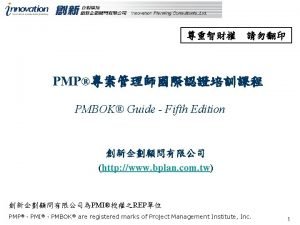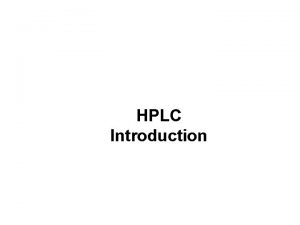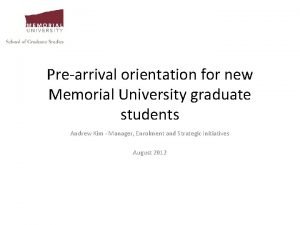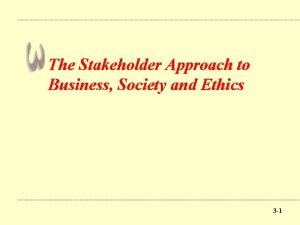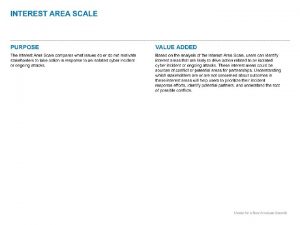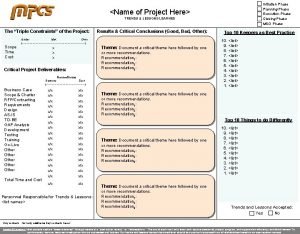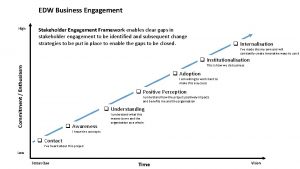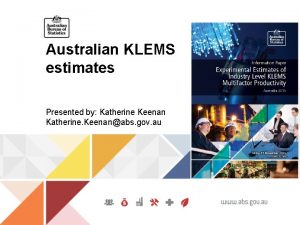Phase II Stakeholder Engagement Research Katherine Kim University

















- Slides: 17

Phase II Stakeholder Engagement Research Katherine Kim, University of California Davis Bethany Kwan, University of Colorado Denver October 13, 2016 Supported by the Patient-Centered Outcomes Research Institute (PCORI) Contract CDRN-1306 -04819 1

§ Progression in Stakeholder Engagement Research § Progress to date in Phase II § Stakeholder Engagement Research Conceptual Model Supported by the Patient-Centered Outcomes Research Institute (PCORI) Contract CDRN-1306 -04819 2

Progression SCANNER (2010 -2013) p. SCANNER phase I (2014 -2016) p. SCANNER phase II (2016 -2019) Supported by the Patient-Centered Outcomes Research Institute (PCORI) Contract CDRN-1306 -04819 3

Progression SCANNER (2010 -2013) • Develop stakeholder-informed governance framework • Understand perspectives on data sharing • Policy expert council (10) • Patient focus groups (6) • Health system interviews (15) • Consumer survey (n=800, n=1200) Supported by the Patient-Centered Outcomes Research Institute (PCORI) Contract CDRN-1306 -04819 4

Progression SCANNER (2010 -2013) p. SCANNER phase I (2014 -2016) • • Demonstrate scalable stakeholder decision-making approaches Develop priorities for patient-centered outcomes research (PCOR) topics Stakeholder advisory boards (46 stakeholders) Online Delphi study (349 stakeholders: patients, caregivers, clinicians, researchers) resulting in approved PCOR priorities for KD, HF, WMO Patient research willingness survey (n=2444) • • • Supported by the Patient-Centered Outcomes Research Institute (PCORI) Contract CDRN-1306 -04819 5

Progression SCANNER (2010 -2013) p. SCANNER phase I (2014 -2016) p. SCANNER phase II (2016 -2019) • Formalize stakeholder engagement in and governance of research process • Evaluate stakeholder engagement in research design • Stakeholders in governance committees and advisory board (24) • Research co-design teams to design PCOR priority studies for KD, HF, WMO • Visualizations of research data • Engagement Framework Supported by the Patient-Centered Outcomes Research Institute (PCORI) Contract CDRN-1306 -04819 6

Phase II Progress to Date Patient Research Willingness Survey § HF/WMO (n=2, 444) › › 10. 2% response rate 70% overweight or obese 38% diagnosed with diabetes 33% previously participated in research § KD (n=65) › 37% previously participated in research Supported by the Patient-Centered Outcomes Research Institute (PCORI) Contract CDRN-1306 -04819 7

Phase II Progress to Date HF/WMO Top four Bottom four Supported by the Patient-Centered Outcomes Research Institute (PCORI) Contract CDRN-1306 -04819 8

Phase II Progress to Date HF/WMO Supported by the Patient-Centered Outcomes Research Institute (PCORI) Contract CDRN-1306 -04819 9

Phase II Progress to Date § KD Research Co-design Team › Convened: 1 KD patient and 1 KD parent (coinvestigators), 2 KD SAB members, p. SCANNER (Burns, Tremoulet, Kim, Haynes, Marie) › PCORI application submitted: A stakeholderdriven comparative effectiveness study of treatments to prevent coronary artery damage in patients with resistant Kawasaki disease. » Includes exploratory aim to evaluate patient reported outcomes (PROs) and use of a parent observation tool to record discomfort, psychosocial concerns, and other experiences of treatment Supported by the Patient-Centered Outcomes Research Institute (PCORI) Contract CDRN-1306 -04819 10

Phase II Progress to Date Conceptual Framework for Characterizing Methods of Stakeholder Engagement in Research Design § Objective: To develop a conceptual framework to guide systematic evaluation of stakeholder engagement methods Supported by the Patient-Centered Outcomes Research Institute (PCORI) Contract CDRN-1306 -04819 11

Research Question(s) § What are effective and efficient strategies for conducting multi-stakeholder engaged research? § Under what circumstances are different strategies most appropriate? Concannon, T. W. , Fuster, M. , Saunders, T. , Patel, K. , Wong, J. B. , Leslie, L. K. , & Lau, J. (2014). A systematic review of stakeholder engagement in comparative effectiveness and patient-centered outcomes research. Journal of general internal medicine, 29(12), 16921701. Supported by the Patient-Centered Outcomes Research Institute (PCORI) Contract CDRN-1306 -04819 12

PCORI Principles of Stakeholder Engagement § Reciprocal relationships—clear roles and decision making § Co-learning—understanding by researchers and stakeholders of research process and patient-centeredness § Trust, transparency, and honesty— inclusive and honest communication § Partnership—valued time and contributions Supported by the Patient-Centered Outcomes Research Institute (PCORI) Contract CDRN-1306 -04819 13

Stakeholder Engagement Framework Elements Definition Who? The types of stakeholders (perspectives, expertise and experience with the research topic /health concern) participating, and the size of the group (how many of each type); characteristics of those who choose to participate What? The stated objective(s) of the engagement effort (what will be produced); to what aspects of study design do stakeholders contribute Why? The stated motivations for engagement (the reasons for bringing together the particular stakeholder group and why each wants to participate; what problem they want to solve) When? How often, for how long, and over what period of time do stakeholders work together? Where? In what settings do stakeholders convene? Is the work synchronous or asynchronous? How? The process of engagement, including methods for gathering input (co-learning), identifying paths of action, and decision making; how stakeholder representatives elicit from the broader community their own perspectives and needs Supported by the Patient-Centered Outcomes Research Institute (PCORI) Contract CDRN-1306 -04819 14

For each element… § Terminology (how do we label and describe the characteristics of the method used) › What are the variables? › Rely upon relevant existing theories, models and frameworks » E. g. , what is the ideal group size for stakeholder engagement? Psychology literature on group behavior and “group composition effects” § Goal (how do we know if it was effective? ) Supported by the Patient-Centered Outcomes Research Institute (PCORI) Contract CDRN-1306 -04819 15

Application of the Engagement Framework § PLAN › Have we considered all important elements? › Does the engagement approach optimally reflect engagement principles? § DESCRIBE › Have we provided enough details on the engagement approach so others may replicate? § EVALUATE › Which approaches work best under which circumstances? Supported by the Patient-Centered Outcomes Research Institute (PCORI) Contract CDRN-1306 -04819 16

Stakeholder Engage. Team § University of California Davis › Katherine Kim, Kate Marie › Patient Co-investigator Hugo Campos § University of California San Diego › Howard Taras, Elizabeth Bell § University of Colorado Denver › Bethany Kwan, Kristen Curcija § University of Washington › Kari Stephens, Brenda Mollis, Gina Keppel Supported by the Patient-Centered Outcomes Research Institute (PCORI) Contract CDRN-1306 -04819 17
 Iso stakeholder engagement
Iso stakeholder engagement Managing stakeholder engagement
Managing stakeholder engagement Pmp stakeholder engagement plan
Pmp stakeholder engagement plan Normal phase vs reverse phase chromatography
Normal phase vs reverse phase chromatography Hplc reverse phase vs normal phase
Hplc reverse phase vs normal phase Mobile phase and stationary phase
Mobile phase and stationary phase Chromatography definition
Chromatography definition Normal phase vs reverse phase chromatography
Normal phase vs reverse phase chromatography Line vs phase voltage
Line vs phase voltage Which detector used in hplc
Which detector used in hplc In a triangle connected source feeding a y connected load
In a triangle connected source feeding a y connected load Csce 441
Csce 441 Mun sgs
Mun sgs Wc online utsa
Wc online utsa Definitive stakeholder
Definitive stakeholder St. galler management modell erklärung
St. galler management modell erklärung Stakeholder priority matrix
Stakeholder priority matrix Multifiduciary approach
Multifiduciary approach


